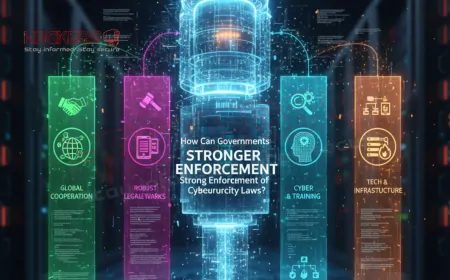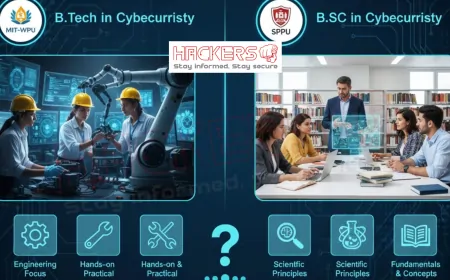How to Use RHCSA Skills for Linux System Hardening in Cybersecurity
Picture your Linux server as a digital vault, safeguarding critical data from relentless cyber attackers trying to crack it open. In 2025, with cyber threats like ransomware and phishing evolving daily, securing—or "hardening"—these systems is a must. The Red Hat Certified System Administrator (RHCSA) certification is your toolkit for building that fortress. Designed for beginners and IT pros alike, RHCSA teaches practical Linux skills to lock down servers, making them tougher for hackers to breach. In this blog, we’ll explore how RHCSA skills translate directly into system hardening, using simple language to guide newcomers and seasoned admins alike. From controlling access to monitoring threats, you’ll learn how to apply these skills to strengthen cybersecurity. Let’s dive in and fortify your Linux systems!

Table of Contents
- What is RHCSA?
- What is System Hardening in Cybersecurity?
- RHCSA Skills for System Hardening
- Step-by-Step: Applying RHCSA Skills to Harden Linux
- RHCSA vs. Other Certifications for Hardening
- Career Benefits in Cybersecurity
- Why Choose Webasha for the Course
- Conclusion
- FAQs
What is RHCSA?
The Red Hat Certified System Administrator (RHCSA) is an entry-level certification from Red Hat, a giant in open-source software. It focuses on managing Red Hat Enterprise Linux (RHEL), a rock-solid operating system used in servers worldwide for its security and reliability. Linux, for those new to it, is like Windows but open-source, meaning its code is free to tweak and secure.
RHCSA training covers the basics: setting up users, managing files, configuring networks, and securing systems. The exam, EX200, is hands-on—you perform real tasks like creating secure accounts or setting up firewalls on a live system. No multiple-choice questions; it’s about proving you can do the job. This makes it perfect for beginners, requiring only some IT familiarity to start. For a detailed syllabus, check out this RHCSA course details blog from Webasha.
In cybersecurity, RHCSA shines because it teaches you to secure Linux servers practically. Since Linux powers most web and cloud servers, these skills are critical for hardening systems against attacks. The certification lasts three years, keeping you sharp in a fast-evolving field.
What is System Hardening in Cybersecurity?
System hardening is like locking all the doors and windows of your house to keep intruders out. In cybersecurity, it means configuring a system—like a Linux server—to reduce vulnerabilities and make it harder for attackers to break in. This includes limiting access, closing unused ports, updating software, and monitoring for threats.
In 2025, hardening is vital because cyber attacks are relentless. Hackers exploit weak passwords, outdated software, or open network ports to steal data or disrupt services. Linux servers, running everything from websites to cloud platforms, are prime targets. Hardening ensures they’re secure, compliant with standards like PCI-DSS (for payment systems), and resilient against attacks like ransomware.
RHCSA skills align perfectly with hardening, teaching you to configure servers securely from the ground up. For beginners, this means learning practical steps to protect systems without needing years of experience.
RHCSA Skills for System Hardening
RHCSA equips you with tools to harden Linux servers. Here’s how key skills contribute:
- User and Group Management: Control who accesses the server by creating secure accounts and groups, reducing risks from unauthorized users.
- File Permissions and Ownership: Set who can read, write, or execute files, following the “least privilege” principle—users get only the access they need, limiting damage from compromised accounts.
- SELinux (Security-Enhanced Linux): This adds a layer of mandatory access controls, restricting what processes can do even if a hacker gains entry.
- Firewall Configuration: Use firewalld to block unnecessary network traffic, like closing unused ports to stop hackers from probing weaknesses.
- Software Management: Update software securely using yum or dnf, patching vulnerabilities that attackers exploit.
- System Monitoring and Logging: Check logs for suspicious activity, like repeated failed logins, to catch attacks early.
- Backup and Recovery: Create secure backups to restore data if ransomware or hardware issues strike, ensuring system continuity.
These skills are beginner-friendly yet powerful, directly addressing common vulnerabilities like weak permissions or outdated systems. They form the core of Linux hardening in cybersecurity.
Step-by-Step: Applying RHCSA Skills to Harden Linux
Let’s walk through how to use RHCSA skills to harden a Linux server, keeping it simple:
- Secure User Accounts: Create users with strong passwords and disable the root account for direct logins. Use commands like
useraddandpasswdto enforce secure credentials. - Restrict Permissions: Use
chmodandchownto limit file access. For example, ensure sensitive files like/etc/shadow(storing passwords) are only accessible by root. - Enable SELinux: Set SELinux to enforcing mode with
setenforce 1to restrict unauthorized process actions. RHCSA teaches basic SELinux troubleshooting to avoid conflicts. - Configure Firewalls: Use
firewall-cmdto allow only necessary services (like HTTP on port 80) and block others, reducing attack surfaces. - Update Software: Run
dnf updateregularly to patch vulnerabilities, ensuring software is sourced from trusted repositories. - Monitor Logs: Check
/var/log/securefor login attempts usingtailorgrep, spotting anomalies like brute-force attacks. - Backup Data: Use
tarto create encrypted backups and store them securely, ready for recovery if needed.
These steps, taught in RHCSA, create a hardened server that’s tough to crack. For real-world examples, read this RHCSA success story on Webasha.
RHCSA vs. Other Certifications for Hardening
How does RHCSA compare to other Linux certs like CompTIA Linux+ or LPIC-1 for hardening? Here’s a table:
| Aspect | RHCSA | CompTIA Linux+ | LPIC-1 |
|---|---|---|---|
| Focus | Red Hat-specific, practical hardening | General Linux, basic security | General Linux, admin focus |
| Exam Style | Hands-on, performance-based | Multiple-choice | Multiple-choice |
| Hardening Skills | Strong: SELinux, firewalls, permissions | Basic: permissions, updates | Moderate: basic security configs |
| Beginner Suitability | High – practical focus | High – broader Linux | Moderate – less hands-on |
| Industry Recognition | High, especially for RHEL | Moderate, vendor-neutral | Moderate, vendor-neutral |
RHCSA’s hands-on approach and Red Hat focus make it ideal for practical hardening in enterprise settings. For more on its value, see this RHCSA overview blog.
Career Benefits in Cybersecurity
RHCSA’s hardening skills open doors in cybersecurity:
- Job Readiness: Prepare for roles like Linux Security Admin or Junior Cybersecurity Analyst, focusing on system protection.
- High Demand: Linux skills are critical in cloud, finance, and tech industries.
- Salary Potential: Earn $80,000-$100,000 in the US or ₹4-8 LPA in India, with growth as you advance.
- Foundation for More: Sets you up for RHCE or CompTIA Security+ for deeper cyber expertise.
- Confidence Boost: Practical training makes you job-ready, reducing beginner jitters.
These benefits make RHCSA a smart choice for cybersecurity careers. For career paths, check this Red Hat career guide.
Why Choose Webasha for the Course
To master RHCSA and harden Linux servers, Webasha Technologies is a top pick, especially in India. Known for training thousands, Webasha offers RHCSA courses with hands-on labs that mirror the exam. Their expert instructors simplify complex topics, making them accessible for beginners.
With flexible options—online, classroom, or bootcamps—plus affordable fees and job placement support, Webasha ensures you’re ready to secure systems. Their study materials and mock tests boost confidence. For exam prep tips, see their RHCSA exam tips blog. Webasha is your partner for mastering Linux hardening.
Conclusion
RHCSA skills are a cornerstone for hardening Linux servers, offering practical ways to secure systems against cyber threats. From user controls to SELinux and firewalls, you learn to build defenses that stop attackers in their tracks. In 2025, as cyber risks grow, these skills are essential for protecting data and advancing in cybersecurity. Whether you’re a beginner or an IT pro, RHCSA provides a clear path to mastering system hardening. Ready to secure your Linux servers? A course with Webasha can get you there, equipping you for a safer digital future.
FAQs
What is RHCSA?
RHCSA is a certification teaching Linux administration, including skills for securing servers.
What is system hardening?
Hardening is configuring systems to reduce vulnerabilities, like limiting access or updating software.
How does RHCSA help with hardening?
It teaches user management, permissions, SELinux, and firewalls to secure servers.
Is RHCSA beginner-friendly?
Yes, it’s designed for those with basic IT knowledge, with clear training.
What is SELinux in RHCSA?
SELinux restricts process actions, adding a security layer to prevent exploits.
Can RHCSA stop cyber attacks?
Yes, by securing configurations, it blocks common attack paths like weak permissions.
Why is Linux key for cybersecurity?
Linux powers most servers, requiring strong security skills to protect them.
How long is RHCSA training?
Typically 3-6 months with consistent study.
Does RHCSA cover firewalls?
Yes, it teaches firewalld to control network traffic.
Is RHCSA enough for cyber roles?
It’s a strong start for entry-level security jobs.
What jobs use RHCSA for hardening?
Linux Security Admin, Cybersecurity Analyst, or IT support roles.
How does RHCSA compare to Linux+?
RHCSA is hands-on and Red Hat-focused, better for practical hardening.
Can RHCSA skills secure cloud servers?
Yes, they apply to Linux-based clouds like AWS.
Does RHCSA teach log monitoring?
Yes, you learn to check logs for threats like brute-force attacks.
Is the RHCSA exam hands-on?
Yes, it tests real tasks on a live system.
How does RHCSA handle updates?
It teaches secure software updates to patch vulnerabilities.
Can beginners learn SELinux?
Yes, RHCSA explains SELinux basics clearly.
Does RHCSA expire?
Yes, after three years; renew with exams or credits.
Why are permissions important?
They limit access, reducing risks from compromised accounts.
Why choose Webasha for RHCSA?
Webasha offers hands-on labs, expert instructors, and job support for beginners.
What's Your Reaction?










































































